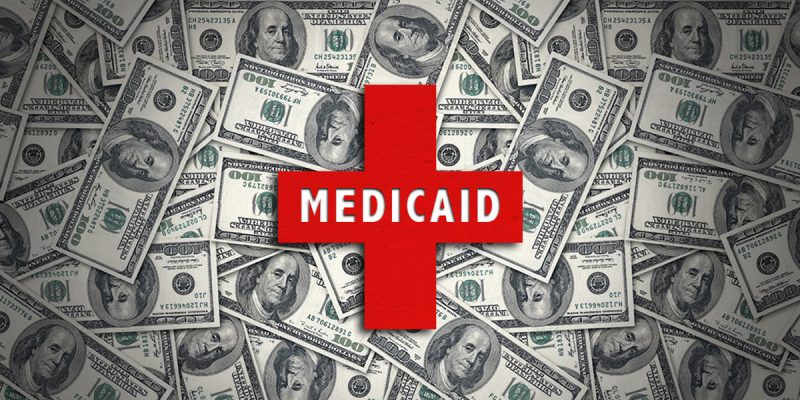A new report by the nonpartisan think tank The Foundation for Government Accountability (FGA) says that Medicaid expansion through the Affordable Care Act is like “Medicare for All Lite,” which has created nothing but “disastrous results.”
If the remaining non-expansion states were to expand Medicaid under Obamacare, FGA argues, about 2 million able-bodied adults risk losing their private insurance. They would then be shifted onto Medicaid and receive less quality care, placing a larger financial burden onto taxpayers.
In “Forced Into Welfare: How Medicaid Expansion Will Kick Millions Of Americans Off Of Private Insurance,” the authors note that the majority of able-bodied adults targeted to enroll in Medicaid already have affordable private insurance through an exchange program.
According to an earlier FGA analysis, nearly 54 percent of potential Medicaid expansion enrollees were already insured, and in some states like Wisconsin, the number was as high as 71 percent.
Chris Jacobs, senior fellow at the New Orleans-based Pelican Institute for Public Policy, reported on the crisis of Louisiana residents being forced to drop their private insurance to enroll in Medicaid, creating a phenomenon known as “crowd out.” After reviewing public records from the Louisiana Department of Health (LDH), Jacobs found that 15,000 people dropped their private insurance to enroll in Medicaid every month throughout 2017.
“Crowd out populations pose big potential costs for Louisiana taxpayers,” Jacobs said. “In 2015, the Legislative Fiscal Office assumed that if Louisiana expanded Medicaid, the state would spend between $900 million and $1.3 billion over five years providing Medicaid coverage to individuals with prior health coverage.”
The average expansion enrollee cost per person is $6,286.20 per year in Louisiana, Jacobs calculates based on LDH testimony given to the House Appropriations Committee earlier this year.
Multiplying this average cost-per-enrollee by the number of individuals who dropped private coverage, according to last year’s LSU Health Insurance Survey, the Pelican Institute estimates the potential cost to state and federal taxpayers is $461.6 million per year.
Similar patterns are occurring nationwide, the FGA report notes. Economists, including Obamacare architect Jonathan Gruber, have concluded that Medicaid expansions in the late 1990s and early 2000s created a crowd-out effect of roughly 60 percent. In other words, for every 10 new Medicaid enrollees, six left private insurance plans, FGA said.
“Worse yet, research focusing specifically on the ObamaCare expansion population estimates that the crowd-out rate could reach as high as 82 percent,” the report states.
FGA vice president of policy and research and co-author of the FGA report, Jonathan Ingram, argues, “If additional states expand Medicaid, taxpayers will be forced to spend billions of dollars to provide Medicaid to able-bodied adults who already have private insurance, robbing resources from the truly needy and other core budget priorities.”
Medicaid expansion has ultimately resulted in taking resources away from the truly needy, the FGA argues, diverting funds into a welfare system for those already enrolled in private coverage.
The losses associated with Medicaid expansion, FGA argues, is nothing compared to what would happen if Medicare for All became federal policy, as a number of Democratic presidential candidates support.
If Medicare for All were implemented, according to an analysis published by the Foundation for Economic Education, federal costs would increase by an unprecedented $32.6 trillion to $38.8 trillion over 10 years.
“Even doubling all projected federal individual and corporate income taxes couldn’t finance it,” its author, Charles Blahous, said.
Blahous also points to projections made by multiple experts published by the Urban Institute, who estimate that if Medicare for All payment rates were set higher than current Medicare rates, hospitals at a bare minimum might break even and national health spending would rise, not fall.
According to an article in The Journal of the American Medical Association, hospitals nationwide would lose roughly $150 billion a year through Medicare for All.
This article was first published by The Center Square.
Advertisement
Advertisement

